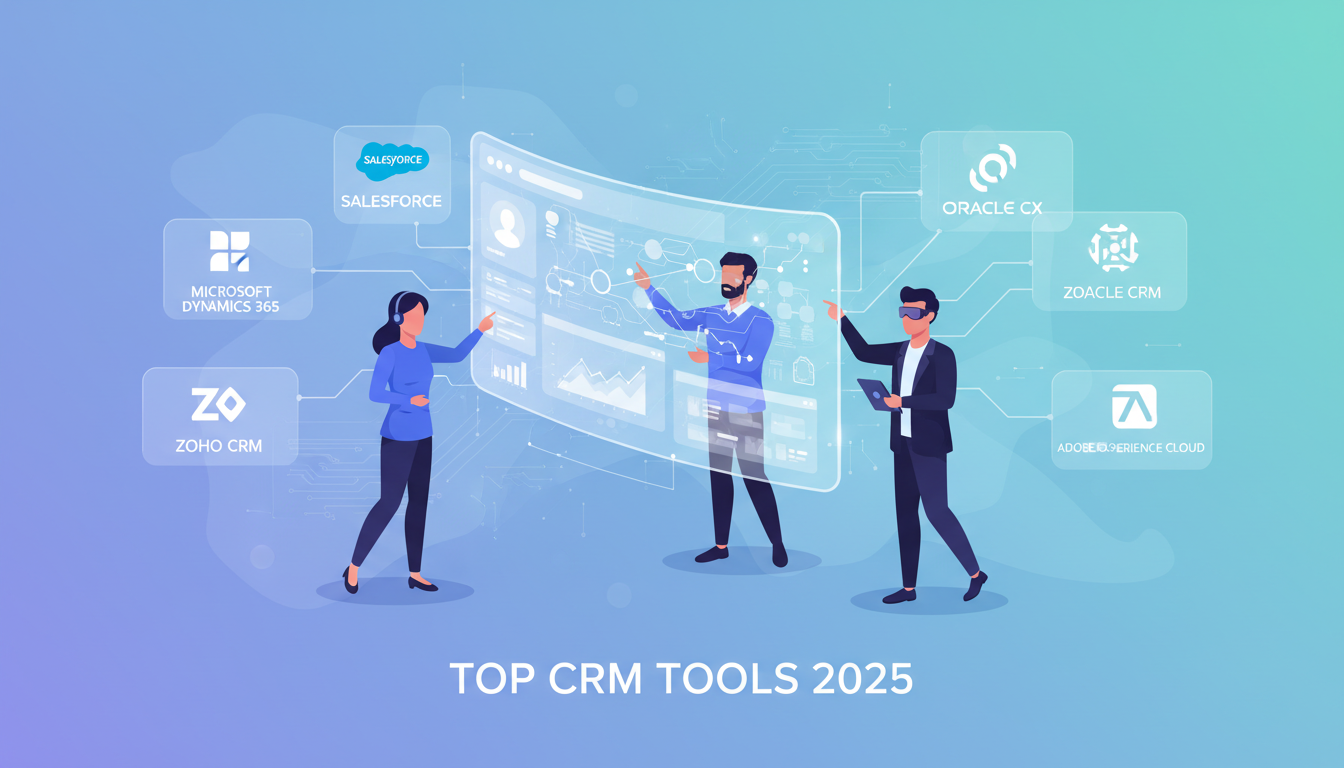The Google Local Guides Program is a collaborative platform where your insights help refine Google Maps. This guide breaks down how to join the program, earn points, and gain the benefits of being a contributing Local Guide. Discover what it means to influence map accuracy and receive perks—all while bolstering your community.
-
Google Local Guides contribute user-generated content that enriches Google Maps with reviews, photos, and updated information, offering benefits to both users and businesses by driving visibility and providing valuable insights for decision-making.
-
The Google Local Guides Program is structured on a point-based system, where users can ascend ten levels by earning points for their contributions, which leads to various perks such as early access to Google features, events, and the potential to earn rewards.
-
Local Guides significantly influence search engine relevance by providing authentic content to Google Maps, which helps enhance local SEO for businesses and improves the precision of Google’s search results through reviews and high-quality images.
The Potential of Google Local Guides
The Google Local Guides Program plays a pivotal role in refining Google Maps by adding missing places, updating information, and enhancing map accuracy. This is largely achieved through user-generated content, where real-world experiences and reviews from genuine users add value to everyday decision-making.
But that’s not all. Google Local Guides also support local businesses, including your local business, by:
-
Writing reviews
-
Sharing photos
-
Answering questions
-
Adding or editing places
-
Checking facts on Google Maps
Both users and businesses enjoy the fruits of this engagement, with businesses experiencing heightened visibility and users gaining early access to perks and rewards. In this game of points, a few more points can make a significant difference.

Join the Global Community of Explorers
Joining the global community of Google Local Guides is a straightforward process. Register with your Google account on the Google Maps website and ensure you meet the age criteria specified in the Local Guides Program Terms and Conditions for your country. As a Google Local Guide, your contributions, such as writing reviews, sharing photos, answering questions, adding or editing places, and checking facts on Google Maps are highly valued. These contributions significantly improve the accuracy and quality of information available to people worldwide.
Rest assured, you won’t be thrown into the deep end. New members of the Google Local Guides global community receive training or orientation to effectively contribute to Google Maps.
So, why wait? Sign up today and become a part of this global community of explorers.


The Structure of Success: Levels and Points in the Local Guides Program
The Google Local Guides Program is built on a point-based system, incentivizing users to earn points through activities like updating information and submitting online reviews on Google Maps.
Achieving higher points reflects your active engagement and success within the program, propelling you to new levels.
From Novice to Expert: Earning Your First Points
So, how do you earn your first points as a Google Local Guide? Start by writing reviews for places you have visited and uploading photos to Google Maps. Different types of contributions, such as adding new location information, editing existing details, or posting reviews and photos, will aid in the accumulation of points. As a beginner, you’ll earn 5 points for each contribution, and publishing your first review will result in a welcome bonus of 5 points.
Maximizing your points requires providing a comprehensive description of your experience, rating the place, and possibly sharing photographs and videos along with your review. Keep in mind that points accrued from your contributions typically appear in your Google Local Guides account within approximately 24 hours.
| Maps contribution | Points earned |
|---|---|
| Review | 10 points per review |
| Review with more than 200 characters | 10 bonus points per review |
| Rating | 1 point per rating |
| Photo | 5 points per photo |
| Photo tags | 3 points per tag |
| Video | 7 points per video |
| Caption (In photo update) | 10 points per caption |
| Answer | 1 point per answer |
| Respond to Q&As | 3 points per response |
| Edit | 5 points per edit |
| Place added | 15 points per place added |
| Road added | 15 points per road added |
| Fact checked | One point per fact checked |
Source: Local Guides Help - Points, Levels, and Badging
Ascending the Ranks: Gaining More Points for Detailed Contributions
Once you’ve grasped the basics, it’s time to set your sights higher. Detailed contributions, such as comprehensive reviews and extensive photos, earn you more points. This heightened point accumulation substantially facilitates your advancement to higher levels, granting access to enhanced benefits and recognition within the Local Guides community.
You can gain points on Google Maps through a range of contributions, including:
-
Writing reviews
-
Rating places
-
Answering questions
-
Adding photos
-
Updating information
-
Verifying information
Notably, a review exceeding 200 characters results in 10 points, while uploading a photo yields 5 points per photo. To accumulate more points and progress through the ranks, prioritize high-quality contributions, maintain authenticity in reviews and responses, consistently contribute, explore new locations, and actively engage with the community.
The Pinnacle of Participation: Achieving the Highest Levels
Have you set your sights on the pinnacle of participation? The maximum level achievable in the Google Local Guides Program is Level 10, requiring a whopping 100,000 points. As you ascend to these top tiers, you’ll be awarded a badge in Google Maps, symbolizing your contributions and accomplishments.
But the benefits don’t stop there. Upon reaching level four, Local Guides receive badges displayed alongside their name in Google Maps. These badges, unique to higher levels, serve as a symbol of honor and acknowledgment within the community.
Benefits of Being a Google Local Guides
Active participation in the Google Local Guides program comes with a host of perks. Beyond the gamified points system, Local Guides receive:
-
Recognition for their contributions
-
The chance to engage with other users through various activities
-
The opportunity to enhance their experience and build reputation in the community.
Local Guides enjoy the following benefits:
-
Privileged early access to new Google features, enabling them to test and offer input on forthcoming Google services and tools ahead of the general public
-
Specialized events and gatherings organized by Google
-
Opportunities to organize their own meet-ups, providing unique networking opportunities
Moreover, exclusive benefits from a range of Google partners, including promotions, discounts, and special offers, are available to the Local Guides community.

Navigating the Local Guides Dashboard
The Google Local Guides dashboard is your command center. This user-friendly interface allows you to:
-
Write reviews
-
Share photos
-
Answer questions
-
Add or edit places
-
Fact-check on Google Maps
with ease.
The dashboard also offers the capability to monitor your points, presenting a comprehensive view of your current score and showcasing your advancement. You can assess your proximity to the next level and keep track of your progress.
To review and access your contributions to Google Maps, simply tap on the ‘Contribute’ button located on the Google Local Guides dashboard.

Contributing Quality Content: Reviews, Photos, and Edits
Being a Local Guides hinges on providing:
-
accurate and helpful reviews, photos, and edits to Google Maps
-
high-quality evaluations from a user’s perspective, ensuring authenticity and usefulness
-
sharing insights and information that enhance the portrayal of the place on Google Maps
Writing high-quality evaluations, ensuring authenticity and usefulness, and sharing insights and information are vital to being a Local Guide.
When it comes to capturing high-quality photos for Google Maps, consider the following tips:
-
Use a good camera or smartphone with a high-resolution camera
-
Pay attention to lighting
-
Frame your photos well
-
Take multiple shots from different angles
-
Edit photos if needed to enhance their quality
These tips will help you capture stunning photos for Google Maps.
Beneficial location modifications on Google Maps can be made by selecting ‘Suggest an edit’ and making changes to a place’s name, location, or other specifics. Users find the following elements beneficial on Google Maps:
-
Business descriptions
-
Editorial summaries
-
Customer review snippets
-
Local SEO content with schema markup
-
Local phrases
-
Conversational writing style
-
Visual images

Verifying the Veracity: Ensuring Accurate Contributions
The integrity of the Local Guides program depends largely on the accuracy of contributions. As a Local Guide, verifying the information you provide, such as opening hours, addresses, and phone numbers, before submission is your responsibility. Google takes the authenticity of contributions seriously, thoroughly reviewing all the edits submitted by Local Guides. Those found to be providing false information risk having their edits rejected and losing benefits.
Local Guides can uphold the program’s integrity by utilizing features such as ‘flagging’ to report any inaccuracies or issues with business listings. Creating specialized guides tailored to specific niche interests can also be highly beneficial, offering expert insights and ensuring the maintenance of high-quality content standards. Remember, contributors who submit inaccurate or misleading information can be removed from the Google Local Guides program, underscoring the significance of upholding trust and accuracy.
Google Local Guides Levels
The Google Local Guides program is organized into distinct levels delineated by point thresholds: Level 1 (0 points), Level 2 (15 points), Level 3 (75 points), Level 4 (250 points), Level 5 (500 points), Level 6 (1,500 points), Level 7 (5,000 points), Level 8 (15,000 points), Level 9 (50,000 points), and Level 10 (100,000 points). As you advance through these levels, you’ll enjoy benefits including recognition, reputation enhancement, early access to perks, tangible rewards, and membership in a global community.
-
Level 1 - 0 points
-
Level 2 - 15 points
-
Level 3 - 75 points
-
Level 4 - 250 points
-
Level 5 - 500 points
-
Level 6 - 1,500 points
-
Level 7 - 5,000 points
-
Level 8 - 15,000 points
-
Level 9 - 50,000 points
-
Level 10 - 100,000 points
Google assesses a Local Guide’s level based on the total number of points they have earned from their contributions on Google Maps. This means your active participation and consistent contributions can help you climb to higher levels.
Common Badge Types in the Google Local Guides Program
To acknowledge and incentivize your contributions, the Google Local Guides Program awards various badges. The prevalent badge categories include:
-
Explorer Badge
-
Photographer Badge
-
Reviewer Badge
-
Trailblazer Badge
-
Fact Finder Badge
To obtain different badges, you’ll need to accumulate points through contributions to Google Maps. Local Guides at Level 4 and higher are awarded the Local Guides badge, while the highest level, Level 10, necessitates a whopping 100,000 points. Each badge within the Google Local Guides Program holds its unique significance, serving as a tangible symbol of your contributions and achievements.
| Level | Points | Badge |
|---|---|---|
| Level 1 | 0 points | No badge |
| Level 2 | 15 points | No badge |
| Level 3 | 75 points | No badge |
| Level 4 | 250 points | |
| Level 5 | 500 points | |
| Level 6 | 1,500 points | |
| Level 7 | 5,000 points | |
| Level 8 | 15,000 points | |
| Level 9 | 50,000 points | |
| Level 10 | 100,000 points |
Can You Earn Money as a Google Maps Local Guides?
While the Google Local Guides program offers various benefits, you might wonder if it can also be a source of income? Active participation in the program and substantial contributions to Google Maps and Google Business Profiles can indeed lead to monetary rewards.
However, it’s critical to note that Google Maps Local Guides do not receive compensation nor have the ability to directly earn money for their contributions. Upon achieving level 5 in the Google Maps Local Guide Program, contributors have the opportunity to receive rewards totaling up to $500 within a year.

Leveraging Local Knowledge for Better Business Visibility
The Google Local Guides program is not just beneficial for users but also for businesses. Local Guides enhance local SEO for businesses by increasing visibility and credibility through active participation in the Google Local Guide community.
Businesses can effectively engage with Google Local Guides by focusing on:
-
Acquiring high local guide reviews and ratings on Google Maps
-
Encouraging contributions such as reviews, photos, and responses to inquiries by Local Guides
-
Optimizing global and local search results on Google by presenting businesses as more precise and pertinent
These strategies can help businesses improve their visibility and attract more customers.

The Impact of Local Guides on Search Engine Relevance
Beyond tangible rewards like points and badges, Google Local Guides hold significant influence over search engine relevance and SEO. They do this by:
-
Providing reviews
-
Correcting misinformation
-
Adding missing locations
-
Enhancing the quality of Google Maps data.
Authentic Google reviews from Local Guides can have a substantial positive impact on Google’s search engine rankings, as Google incorporates review count and score into its local search algorithm. High-quality images from Local Guides also play a significant role in improving search engine relevance by enriching SEO, increasing visibility in local search results, and offering precise and pertinent visual information that complements search queries.
Google leverages this crowd-sourced information to enhance visibility, stimulate comprehensive contributions, and tailor search results to be more personalized and precise based on user-provided data.

Safeguarding Against Spam: Dealing with Fake Reviews
Even though the Google Local Guides program is rooted in authenticity, it’s not immune to the threat of fake reviews. Inauthentic reviews, such as those discouraging negative feedback or selectively soliciting positive ones, contravene Google’s policy. Local Guides who are found to be duplicating reviews across locations will be removed from the program.
Google has employed tactics such as removing reviews with only a 1, 2, or 3-star rating and no accompanying comments within 24 hours to mitigate spam reviews. Fake reviews can cause substantial harm to a business’ visibility and reputation. They can lead to the dissemination of misleading information to potential customers, undermine the credibility of the business, and have a detrimental effect on its search engine rankings. Business owners can effectively manage fake reviews by enlisting the help of a Google Local Guide with a higher rank than the reviewer to report the review as spam.
In conclusion, the Google Local Guides Program has transformed the way we interact with our surroundings. By enhancing the accuracy of Google Maps, it has become an invaluable tool for users and businesses alike. Whether it’s through writing comprehensive reviews, sharing high-quality photos, or verifying information, every contribution of a Local Guide makes a difference.
As a Google Local Guide, you’re not just gaining points or badges but playing a crucial role in a global community. Every review you write, every photo you share, every inaccuracy you correct, you’re helping millions of users make informed decisions and supporting local businesses. So, take the plunge, become a Local Guide, and be a part of this global journey to make the world a little more connected, one review at a time!

Do you need more content about digital marketing? Click Complete Guide On Choosing A Digital Marketing & Best Digital Marketing Tools. You can find the best digital marketing agency for your brand with Edvido. Discover the Best Digital Marketing Agencies. See the details of Best Digital Marketing Agencies in Boston.
Frequently Asked Questions
Does Google Local Guides get paid?
No, Google Local Guides do not get paid as it is a volunteer-driven program. However, they may receive early access to some certain new Google features and occasional rewards from partners.
Do Google Local Guides get rewards?
Yes, Google Local Guides receive rewards in the form of recognition, perks, badges, and a significant impact on the experiences of Google Maps users worldwide. These rewards are earned by contributing to Google Maps.
Is it worth it to become a Local Guide on Google?
Yes, becoming a Local Guide on Google is worth it as it allows you to earn recognition, perks, and make a significant impact on the experiences of millions of Google Maps users worldwide.
How can I join the Google Local Guides community?
To join the Google Local Guides community, simply register with your Google account on the Google Maps website and make sure to meet the specified age criteria for your country, as outlined in the Local Guides Program Terms and Conditions.
How can I deal with fake reviews?
If you encounter fake reviews, report them to Google and enlist the help of a Google Local Guide with a higher rank to report the review as spam. This proactive approach can help address the issue effectively.
"Ready to transform your idea into a mobile app? Discover top-rated developers on Edvido today."
















